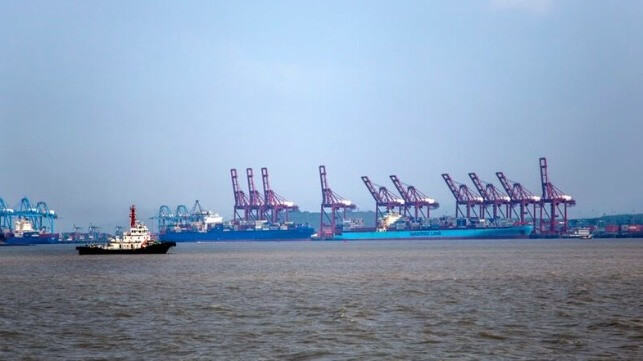National Longshore Strike May Hit All of India's Major Ports on Wednesday

After nearly three years of wage negotiations, India's longshore unions are on the verge of a strike, and they could stage a walkout as early as 0600 hours Wednesday morning if last-ditch talks fail to produce a compromise.
On Tuesday, the Centre of Indian Trade Unions will meet with the state-run India Ports Association for a final round of discussions. If the talks do not work out, strikes could hit all 12 major Indian seaports, including Kandla, Jawaharlal Nehru, Kochi, Kolkata, Visakhapatnam, Tuticorin and Mumbai.
The walkouts will cover about 20,000 longshoremen and harbor tug operators, the union consortium said. The participation of tug crews in the strike means that even privately-operated, non-union terminals in the 12 affected ports may not be able to dock and undock vessels.
A full-scale strike would shut down about 2.3 million tonnes of cargo movement every day, Water Transport Workers' Federation leader T. Narendra Rao told Hindu Business Line. Rao called the ports association's approach to talks "lethargic and cruel," and said that 32 months was too long to wait for a new contract. "We are not begging for anyone's generosity or for alms, but struggling to keep our rights and privileges upright," Rao said.

that matters most
Get the latest maritime news delivered to your inbox daily.
Indian shipping interests have expressed dismay at the prospect of a major port shutdown, especially since the disruption in the Red Sea has already affected the shipping routes to and from the subcontinent. However, ships' agency GAC advised that the strike might not be quite as severe as forecast. The agency believes that tanker and LNG terminals will probably not be affected, and it says that only four ports - Tuticorin, Chennai, Ennore and Vizag - have actually been served with strike notices so far.
"[The strike] will lead to severe delays and congestion, extended turnaround time for vessels. Prolonged disruption will also result in higher operational costs like demurrage, detention, and re-routing expenses," GAC advised.
